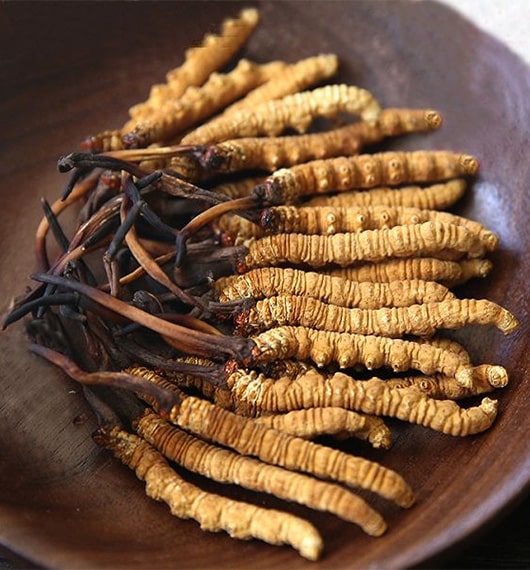Phone order ☎️+97517989430
Phone order ☎️+97517989430

In the relentless pursuit of effective treatments for COVID-19, researchers have explored various avenues, including natural remedies. One such remedy that has gained attention is Cordyceps, a unique medicinal fungus with potential immunological benefits. In this blog, we delve into a detailed study that investigated the impact of Cordyceps capsules as an adjunct treatment for individuals with mild to moderate COVID-19 infection. The study's findings provide intriguing insights into the potential of Cordyceps to aid recovery and symptom relief.
Cordyceps is not a stranger to holistic medicine. Derived from two species, Cordyceps sinensis and Cordyceps militaris, this fungus has been recognized for its ability to modulate the immune system and enhance cellular signaling. Studies have highlighted its positive effects on macrophages, antigen-presenting cells, T-cells, and CD4+ and CD8+ cells. Furthermore, Cordyceps contains essential nutrients, such as amino acids and vitamins, contributing to improved cellular function and recovery.
The study involved administering Cordyceps capsules, 500 mg three times a day, alongside supportive treatment to patients with mild to moderate COVID-19 infection. A placebo group was used for comparison. The research focused on various aspects, including biomarker analysis, clinical outcomes, and adverse events.
The study meticulously analyzed biomarkers associated with inflammation, immune response, and infection. While some biomarkers demonstrated noticeable changes, statistical significance was not consistently reached. However, early trends indicated potential benefits. Notably, biomarkers like MCPIP, CxCL10, and IL-1β showed significant changes for both overall patients and the moderate category on days 5 and 10 compared to baseline.
Safety is a paramount concern in any treatment. The study observed that Cordyceps supplementation was well-tolerated, with no interruptions or dose reductions due to adverse events. This indicates that Cordyceps could be a safe immunological adjuvant for COVID-19 treatment.
The study acknowledges its limitations, including a relatively small sample size and the need for larger-scale studies to validate the findings. While the results did not consistently reach clinical significance, the potential benefits and substantial changes observed highlight the importance of continued exploration.